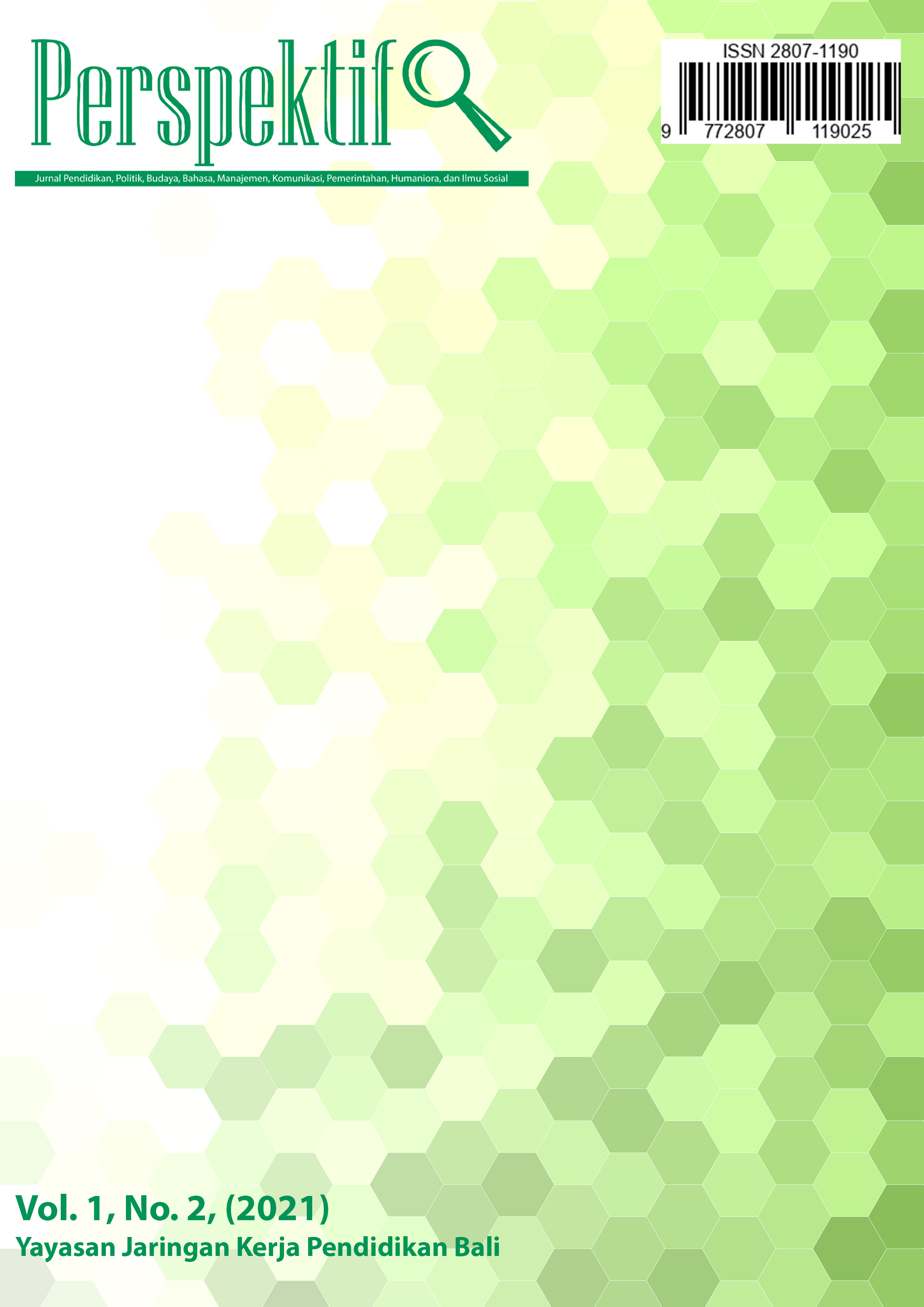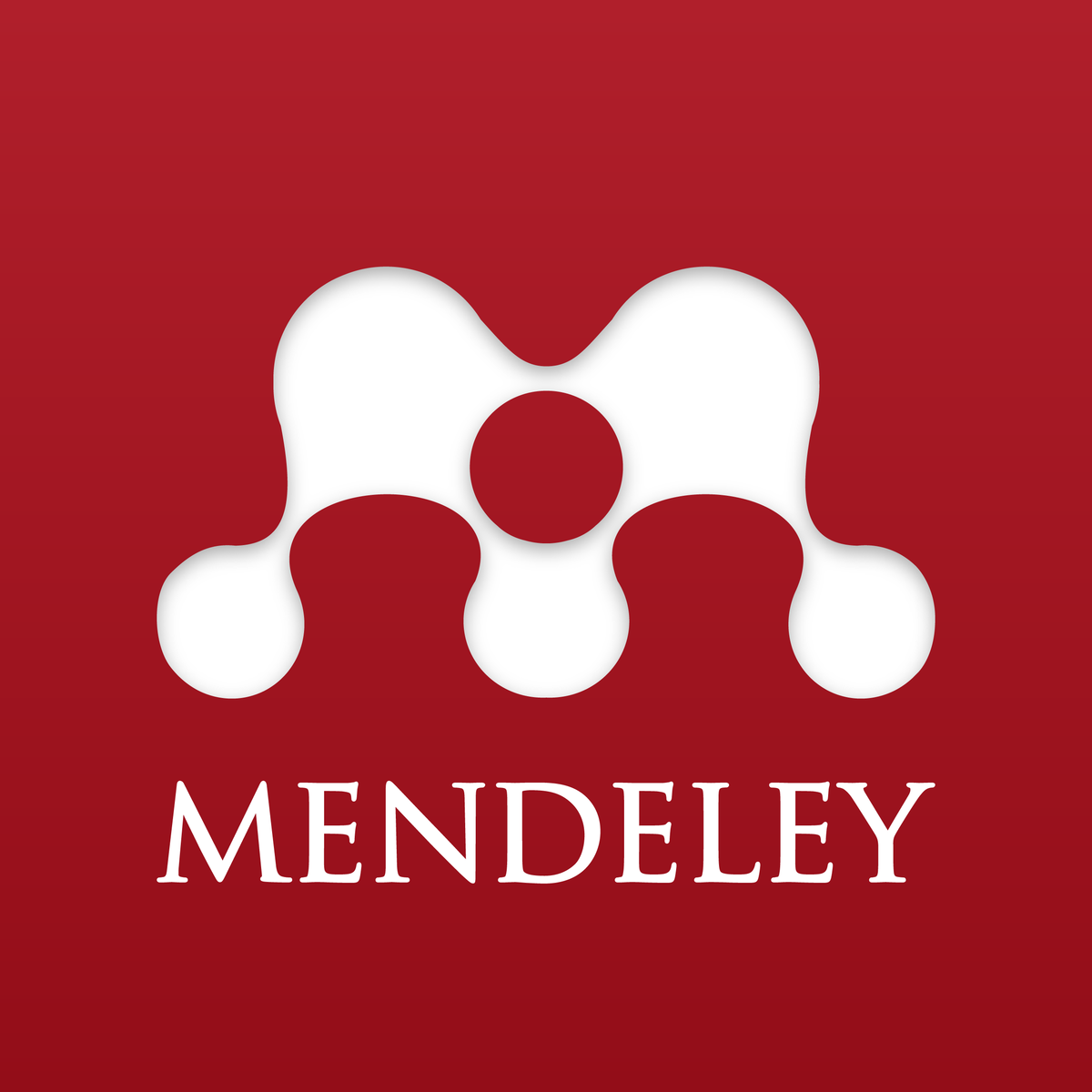LITERASI DIGITAL
DOI:
https://doi.org/10.53947/perspekt.v1i2.32Kata Kunci:
Literasi digital, Memahami literasi digital, Tekhnologi digitalAbstrak
Abstrak
Literasi digital merupakan suatu bentuk kemampuan untuk mendapatkan, memahami dan menggunakan informasi yang berasal dari berbagai sumber dalam bentuk digital. Literasi ini sendiri dalam konteks pendidikan berperan dalam mengembangkan pengetahuan seseorang pada materi pelajaran tertentu serta mendorong rasa ingin tahu dan mengembangkan kreativitas yang dimiliki. Hal inilah yang menuntut mahaiswa agar memiliki literasi atau kemampuan untuk mengolah dan memahami informasi yang baik untuk dipelajari dan di mengerti dengan begitu perkembangan teknologi yang sangat pesat, memungkinkan mahasiswa untuk lebih muda dalam mengakses informasi. Literasi digital juga sangat diperlukan untuk mengatasi masalah ledakan informasi yang terus meningkat di dalam sumber digital. Masyarakat kini dihadapi dengan perkembangan teknologi yang sangat pesat masyarakat juga dituntut untuk memilah dan memilih Informasi yang sesuai dengan keadaan yang sebenarnya. Paparan berbagai macam informasi dari media membuat kebanyakan orang ragu akan informasi yang benar dan tidak benar adanya. Maka dengan adanya fenomena tersebut, pengetahuan literasi media sangat dibutuhkan sebagai kemampuan untuk mengolah informasi. Dalam hal ini Penyalahgunaan teknologi digital dapat berdampak buruk bagi kehidupan pribadi dan sosial. Oleh karena itu literasi digital perlu dikembangkan untuk membangun karakter bangsa guna menciptakan generasi yang cerdas dan kaya akan informasi serta kritis dalam memilih informasi yang baik dan benar. Dimensi literasi digital meliputi alat dan sistem, informasi dan data, berbagi dan kreasi, konteks sejarah dan budaya. Melalui pemahaman terhadap dimensi dimensi tersebut dapat dikembangkan menjadi materi yang dapat membantu seseorang untuk lebih kritis dalam memilih Informasi.
Abstract
Digital literacy is a form of ability to obtain, understand and use information from various sources in digital form. This literacy itself in the context of education plays a role in developing one's knowledge on certain subject matter and encouraging curiosity and developing one's creativity. This is what requires students to have literacy or the ability to process and understand information that is good to learn and understand, so the rapid development of technology allows students to access information more easily. Digital literacy is also very much needed to overcome the problem of the ever-increasing explosion of information in digital sources. Society is now faced with very rapid technological developments; people are also required to sort and choose the information that is under the actual situation. Exposure to various kinds of information from the media makes most people doubt whether the information is true or not. So, with this phenomenon, knowledge of media literacy is needed as the ability to process information. In this case, the misuse of digital technology can harm personal and social life. Therefore, digital literacy needs to be developed to build the nation's character to create a generation that is intelligent and rich in information and critical in choosing good and correct information. Dimensions of digital literacy include tools and systems, information and data, sharing and creation, historical and cultural contexts. Through an understanding of these dimensions, it can be developed into material that can help someone to be more critical in choosing information.
Referensi
A’yuni, Q. Q. (2015). Literasi Digital Remaja Di Kota Surabaya: Studi Deskriptif tentang Tingkat Kompetensi Literasi Digital pada Remaja SMP, SMA dan Mahasiswa di Kota Surabaya. Libri-Net, 4(2), 1–15. https://repository.unair.ac.id/17685/
Afandi, Junanto, T., & Afriani, R. (2016). Implementasi Digital-Age Literacy Dalam Pendidikan Abad 21 Di Indonesia. Prosiding Seminar Nasional Pendidikan Sains, 3(0), 2016–2113. https://jurnal.fkip.uns.ac.id/index.php/snps/article/view/9820
Akbar, M. F., & Anggraeni, F. D. (2017). Teknologi Dalam Pendidikan : Literasi Digital dan Self-Directed Learning pada Mahasiswa Skripsi. Indigenous: Jurnal Ilmiah Psikologi, 2(1). https://doi.org/10.23917/indigenous.v1i1.4458 DOI: https://doi.org/10.23917/indigenous.v1i1.4458
Bawden, D. (2001). Information and digital literacies: A review of concepts. Journal of Documentation, 57(2), 218–259. https://doi.org/10.1108/EUM0000000007083 DOI: https://doi.org/10.1108/EUM0000000007083
Eshet, Y. (2004). Digital Literacy: A Conceptual Framework for Survival Skills in the Digital era. Journal of Educational Multimedia and Hypermedia, 13(1), 93–106. http://www.editlib.org/p/4793/%5Cnfiles/364/Eshet and Eshet - 2004 - Digital Literacy A Conceptual Framework for Survi.pdf%5Cnfiles/459/4793.html
Friedman, T. (2007). The world is flat : a brief history of the twenty-first century. In The World is Flat: a Brief History of Twenty-First Century. Picador/Farrar Straus and Giroux ;Distributed by Holtzbrinck Publishers.
Gilster, P. (1997). Digital literacy. Wiley Computer Pub.
Hague, A. C., & Payton, S. (2010). Digital literacy across the curriculum. In Futurelab (p. 58). http://www2.futurelab.org.uk/resources/documents/handbooks/digital_literacy.pdf%5Cnwww.futurelab.org%5Cnwww.futurelab.org.uk/%5Cnprojects/digital-participation
Kurnianingsih, I., Rosini, R., & Ismayati, N. (2017). Upaya Peningkatan Kemampuan Literasi Digital Bagi Tenaga Perpustakaan Sekolah dan Guru di Wilayah Jakarta Pusat Melalui Pelatihan Literasi Informasi. Jurnal Pengabdian Kepada Masyarakat (Indonesian Journal of Community Engagement), 3(1), 61. https://doi.org/10.22146/jpkm.25370 DOI: https://doi.org/10.22146/jpkm.25370
Martin, A. (2008). Digital Literacy and the “Digital Society.” In C. Lankshear & M. Knobel (Eds.), Digital Literacies: Concepts, Policies & Practices (pp. 151–176). Peter Lang. https://pages.ucsd.edu/~bgoldfarb/comt109w10/reading/Lankshear-Knobel_et_al-DigitalLiteracies.pdf
Pilliang, Y. (2012). MASYARAKAT INFORMASI DAN DIGITAL: Teknologi Informasi dan Perubahan Sosial. Jurnal Sosioteknologi, 11(27), 143–155.
Suradika, A. (2000). Metode Penelitian Sosial. UMJ Press.
Umam, Kaiful; Zaini, I. (2013). Penerapan Media Digital Dalam Pembelajaran Apresiasi Batik Kelas X SMA Negeri 1 Blega. Jurnal Pendidikan Seni Rupa, 1(1), 100–105. https://jurnalmahasiswa.unesa.ac.id/index.php/va/article/view/9788
Unduhan
Diterbitkan
Cara Mengutip
Terbitan
Bagian
Kategori
Lisensi
Hak Cipta (c) 2021 Perspektif

Artikel ini berlisensiCreative Commons Attribution-ShareAlike 4.0 International License.












